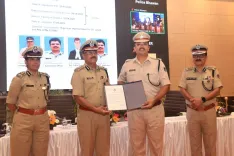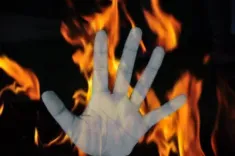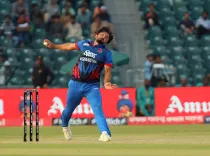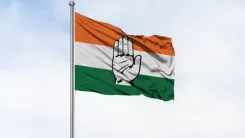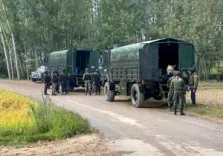Has the Calcutta HC ordered a personal inquiry into the harassment of lawyers and the defamation of a judge?

Synopsis
Key Takeaways
- Calcutta High Court takes a strong stance on harassment against lawyers.
- Commissioner Verma is tasked with a personal investigation.
- Legal notices issued to key individuals involved in the protests.
- Judicial integrity is paramount in a democratic society.
- Preservation of evidence is essential for justice.
Kolkata, May 2 (NationPress) A specially convened three-judge bench of the Calcutta High Court addressed the suo motu case regarding the harassment of lawyers and maligning of a judge during protest demonstrations targeting senior advocate and CPI-M Rajya Sabha member Bikas Ranjan Bhattacharya last month. On Friday, the court mandated Kolkata Police Commissioner Manoj Kumar Verma to take personal charge of the investigation.
The judicial panel, comprising Justice Arijit Bandopadhyay, Justice Sabyasachi Bhattacharya, and Justice Rajarshi Bharadwaj, instructed the Police Commissioner to submit a comprehensive report to the court following the investigation.
The police were also directed to safeguard the CCTV footage from the protest site, located near Bhattacharya’s office and the Calcutta High Court complex.
The bench further ordered that legal notifications be issued to 15 individuals, including Trinamool Congress state General Secretary Kunal Ghosh, with the Registrar General of the high court responsible for ensuring proper delivery.
During the hearings on Friday, the division bench noted the unfortunate nature of the protest, deeming it a form of criminal contempt of court.
The protest occurred outside Bhattacharya’s chamber last month, where he presented various arguments in the school job scam cases in West Bengal, which many protesters believed influenced negative court rulings resulting in job terminations for numerous teaching and non-teaching staff in state-run schools.
Last week's protests also included derogatory remarks directed at Justice Biswajit Basu due to some of his adverse observations in connection with these school job scams.
On April 29, the Calcutta High Court initiated suo motu proceedings after members of the Calcutta High Court Bar Association brought this situation to the attention of Chief Justice T.S. Sivagnanam and Justice Chaitali Chattopadhyay, filing a contempt of court petition.
Chief Justice Sivagnanam acknowledged the petition and instructed the Kolkata Police to promptly identify those responsible for the unrest, demanding a report on how such incidents could occur with police presence, jeopardizing the integrity of the judiciary.


